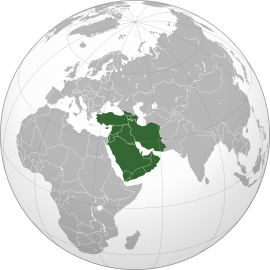Dr. Jan Best de Vries:
Sunday afternoon 30 November, Salih Muslim, the male co-president of the PYD (the largest party in Rojava), who normally lives in Kobane, flew in from Stockholm to attend at The Hague a Kurdish feast in celebration of the anniversary of the foundation of the PKK, which is regarded by the government of The Netherlands as a “terrorist organization”. His female couterpart as PYD co-president is still fighting in Kobane. Her representative, however, handed over to me the flag of the Women’s Defense Units (YPJ), which now hangs on the wall of my study.Salih Muslim and I, having been his guest for political reasons, had plenty time to discuss the future of Rojava after ISIS. I told him that in the epilogue of On the Road to Kurdistan, our second book on the past and present situation of the Kurds in West Asia, we pose that the only workable way to develop other democratic states in the region is through the foundation of a West Asian Union. Who in practice are the allies of Rojava at the moment in West Asia? What is certain is that the Kurds in South Kurdistan have sent their Peshmergas to Kobane and there are also the Kurds of North Kurdistan who have at last found their own safe border crossing from Turkey into Rojava, to travel on to Kobane and fight there, together with its defenders, against the ISIS jihadists still pouring in from Turkey.
One should not forget that the Free Syrian Army in Aleppo has also sent freedom fighters to Kobane in order to prevent its conquest by the jihadists of ISIS. It depends on how many blows Hezbollah on Assad’s side can take before the moderate Sunnis and Christians in Lebanon will decide to adopt the democratic example of Rojava for their country in order to prevent another occupation by the Syrian army as they have had to experience in the past. And, with a weakened Hezbollah, the relations between Lebanon and Israel should be normalized when the government of the latter state would like to cooperate militarily with the now semi-autonomous regions of a free Kurdistan.
The only positive aspect of the currently raging wars in West Asia is that Turkey and its ally ISIS have shown us that the present borders mean nothing and that these can be freely crossed between Turkey, Syria and Iraq. A mere inland link from Rojava through the province of Aleppo to Lebanon would change the political landscape dramatically and this would eventually lead to the formation of one linked-up West Asian Union of democratic states with the combined military power of Kurdistan and Israel. In the Netherlands we finance in the meantime weapons and books for Rojava, because in the perspective described above, Rojava has a bright future. And, with this future in mind, we have recently taken the initiative of founding the Koerdisch-Joodse Vriendschapsbond “Azadi Shalom” (Kurdish-Jewish Friendship Association “Freedom Peace”).
Dr. Jan Best de Vries is an archaeologist and historian, decipherer of the so-called Byblos Script from Aleppo and Alalakh (‘How to Decipher the Byblos Script’, Aspekt Publishers 2014, ISBN978-946-153-420-0)
.jpg)




The future of Iraqi Kurdistan is definite independence.
Turkey-Iran-Russia-Iraq-Hezbollah-Syria-Islamists alliances is in the formation versus US-EU-Isreal-Kurds.
A new war is on the horizon.
IS scenario was intentionally designed to wage a
non-relevant, unnecessary war on behalf of other powers. It delayed Kurdish independence. Kurds, do not deviate from your main goal. Terrorism will disappear once an independent Kurdish state is founded. KRG is committing big blunders by making any agreement with Iraq.
I think Kurdistan should declare itself an independent nation unilaterally and work out an alliance with Israel for mutual defense and commerce agreements, as well as Jordan and possibly even Lebanon, Iraq and Syria, to which some of these countries could officially recognize an independent Kurdistan as a nation.